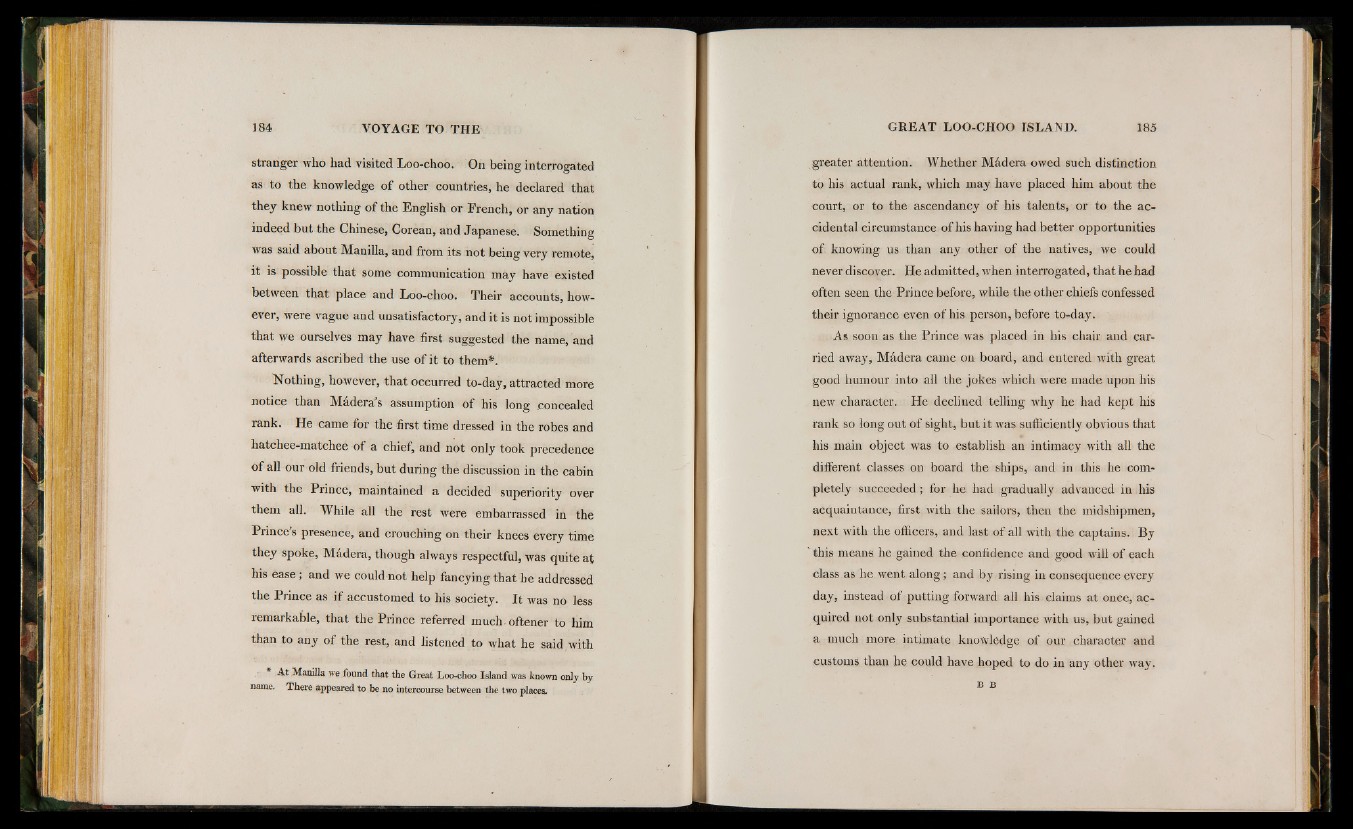
stranger who had visited Loo-choo. On being interrogated
as to the knowledge of other countries, he declared that
they knew nothing of the English or French, or any nation
indeed but the Chinese, Corean, and Japanese. Something
was said about Manilla, and from its not being very remote,
it is possible that some communication may have existed
between that place and Loo-choo. Their accounts, however,
were vague and unsatisfactory, and it is not impossible
that we ourselves may have first suggested the name, and
afterwards ascribed the use of it to them*.
Nothing, however, that occurred to-day, attracted more
notice than M&dera s assumption of his long concealed
rank. He came for the first time dressed in the robes and
hatchee-matchee of a chief, and not only took precedence
of all our old friends, but during the discussion in the cabin
with the Prince, maintained a decided superiority over
them all. While all the rest were embarrassed in the
Prince’s presence, and crouching on their knees every time
they spoke, M&dera, though always respectful, was quite a t
his ease; and we could not help fancying that he addressed
the Prince as if accustomed to his society. I t was no less
lemarkable, that the Prince referred much, oftener to him
than to any of the rest, and listened to what he said, with
. At Manilla we found that the Great Loo-choo Island was known only by
name. There appeared to be no intercourse between the two places.
greater attention. Whether M&dera owed such distinction
to his actual rank, which may have placed him about the
court, or to the ascendancy of his talents, or to the accidental
circumstance of his having had better opportunities
of knowing us than any other of the natives, we could
never discover. He admitted, when interrogated, that he had
often seen the Prince before, while the other chiefs confessed
their ignorance even of his person, before to-day.
As soon as the Prince was placed in his chair and carried
away, M&dera came on board, and entered with great
good humour into all the jokes which were made upon his
new character. He declined telling why he had kept his
rank so long out of sight, but it was sufficiently obvious that
his main object was to establish an intimacy with all the
different classes on board the ships, and in this he completely
succeeded; for he had gradually advanced in his
acquaintance, first with the sailors, then the midshipmen,
next with the officers, and last of all with the captains. By
' this means he gained the confidence and good will of each
class as he went along ; and by rising in consequence every
day, instead of putting forward all his claims a t once, acquired
not only substantial importance with us, but gained
a much more intimate knowledge of our character and
customs than he could have hoped to do in any other way.
B B